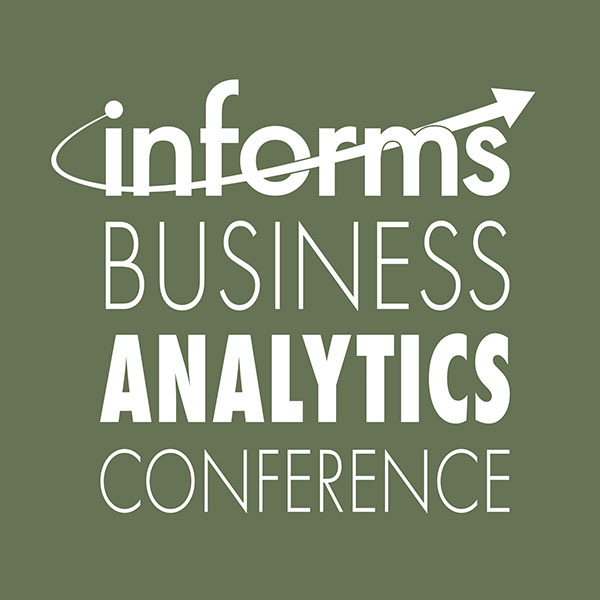The Franz Edelman Competition attests to the contributions of operations research and analytics in both the for-profit and nonprofit sectors. Since its inception, cumulative benefits from Edelman finalist projects have topped $363 billion. Edelman finalist teams have improved organizational efficiency, increased profits, brought better products to consumers, helped foster peace negotiations, and saved lives. The purpose of the Franz Edelman Competition is to recognize and reward outstanding examples of operations research, management science, and advanced analytics in practice in the world.
Finalists will compete for the top prize in this “Super Bowl” of O.R. and business analytics practice, showcasing analytics projects that had major impacts on their client organizations.
The competition takes place on Monday, April 17 and is open to all conference registrants. The Edelman Gala is in the evening of Monday, April 17.
A reprise of the winner’s presentation will be given on Tuesday, April 18.
The finalists for the 2023 Edelman Award include:
DHL Supply Chain. A new software system, “The Transport Network Optimizer,” has been developed with The Ohio State University Department of Integrated Systems Engineering that supports bidding on projects and positioning. It solves large-scale routing and is saving more than $98.6 million/year with a total past savings of $116.5 million.
Huawei Cloud. To minimize bandwidth cost while ensuring high-quality B2B live-streaming services in 60 countries, Huawei Cloud developed the GSCO system, integrating forecasting, network planning and sequential offline-online traffic allocation. GSCO has helped reduce 30% in bandwidth cost, or $49.6 million, while supporting a tenfold increase in traffic volume within two years.
JD.com, Inc. China’s leading e-retailer operates a vast in-house logistics network of approximately 1,400 warehouses. They have developed three novel technologies: end-to-end optimization, intelligent risk management and C2M (consumer-to-manufacturer). These technologies facilitate JD.com to achieve three levels of superior performances, including daily operational excellence, resiliency under disruption and value creation for the ecosystem.
Lyft, Inc. During the height of the COVID-19 pandemic, Lyft changed the algorithm that matches passengers and drivers. The new approach uses online reinforcement learning to constantly self-improve, allowing drivers to serve millions of additional rides each year. The innovation benefited drivers, passengers and the platform, and generated more than $30 million in incremental annual revenue.
Meituan. As a tech-driven retail company, they have a strategic focus on “Retail + Technology.” Every day, more than 60 million on-demand orders are delivered through its leading minute-level delivery network. This relies on assigning massive orders to appropriate couriers in seconds. An intelligent dispatch system is built to continuously improve the assignment quality for couriers and consumers.
Walmart. The world’s leading retailer used advanced optimization models to build a transformation roadmap for long-term supply chain capital investments as well as an application supporting daily decisions of truck routing and loading. The application avoided 72 million pounds of CO2 and resulted in a savings of $75 million during fiscal year 2023.

